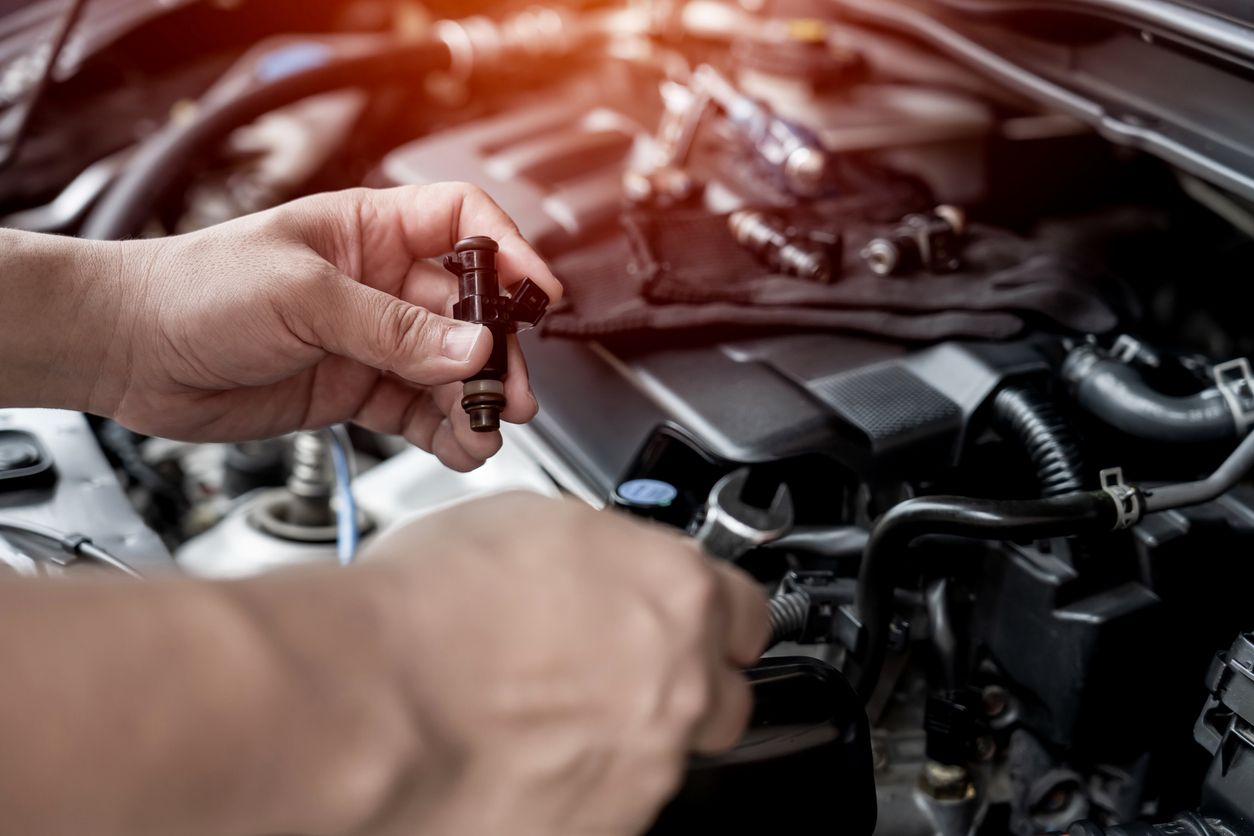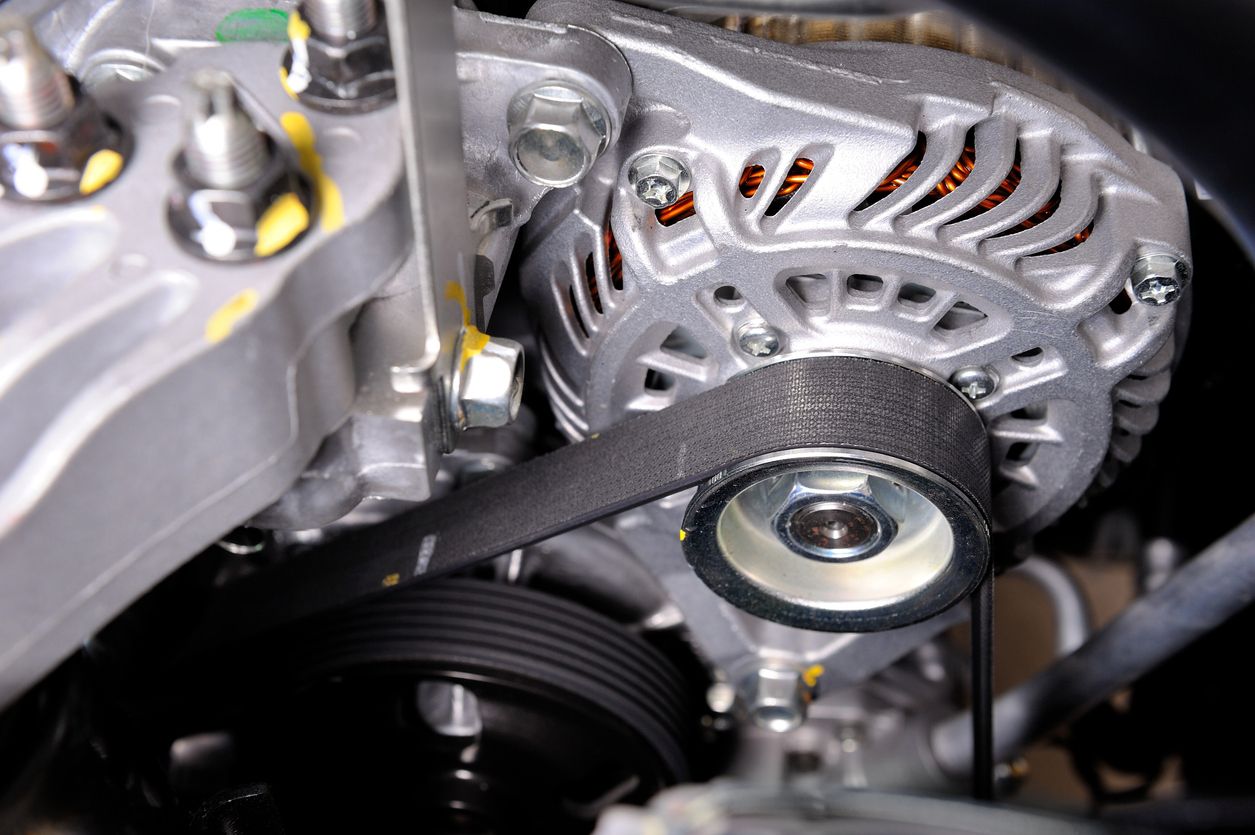Nothing spoils summer fun quite like a broken car air conditioner. If your A/C is blowing warm air when you have it set to cool, there could be several causes. Here are a few of the most common reasons for a car A/C not blowing cool air.
1. DIRTY CABIN AIR FILTER
The cabin air filter filters the air entering your passenger cabin, trapping dust, pollen, and other debris. If it is not replaced regularly, this filter can become clogged, restricting airflow and reducing cooling power.
To prevent a clogged filter, change your cabin air filter regularly or according to your manufacturer's suggested maintenance schedule. Keeping the filter clean helps to ensure optimal airflow for long, sunny drives.
2. REFRIGERANT LEAK
A car A/C blowing hot air is often the result of a refrigerant leak. Refrigerant is a chemical that can alternate between liquid and gas states at specific temperatures. It circulates through your car's A/C system, expanding and contracting as it removes heat and humidity from the cabin. Your vehicle's A/C compressor will not function correctly without the proper refrigerant level.
A leak can happen because of an old hose as well as a rusted or punctured evaporator. But don't expect to spot a refrigerant leak easily. You probably won't notice a puddle of liquid in or under your car. That's because, unlike motor oil and other vital car fluids, refrigerant typically escapes into the atmosphere in a gaseous state when there is a leak. Sometimes, you might get lucky and notice an oily residue at the exact location of the leak.
One of our technicians can inject dye into the system to help trace a refrigerant leak. Once they identify the source of the leak, they can perform the necessary car A/C repairs (with your approval) and recharge the system so you can receive fresh, cold air once again.
3. CLOGGED EXPANSION VALVE
Expansion valves, or orifice tubes on older vehicles, play an important role in car A/C systems. They regulate the flow of refrigerant into the evaporator, which then absorbs heat from the air. If your expansion valve or orifice tube is clogged or malfunctioning, it can restrict refrigerant flow, leading to inefficient cooling and warm air from the vents.
4. FAULTY BLOWER MOTOR
The blower motor pushes air through the A/C system and into the cabin. If the blower motor isn't working like it's supposed to, it can reduce airflow, making the air coming from the vents feel warm or not as cool as you'd expect.
Common signs of a failing blower motor include unusual squeaking noises from the passenger side floorboard, weak or absent airflow from the vents, smoke or a burning smell from the A/C vents while driving, and intermittent operation. Address blower motor issues promptly by visiting a technician at your local Tires Plus. We can help restore proper airflow and cooling performance for the hot months ahead.
5. FAULTY CONDENSER
When your air conditioning system pulls heat and humidity out of your cabin, the refrigerant absorbs that heat. In turn, the condenser keeps the refrigerant cool so the cycle can continue. If the condenser isn't doing its job, the process breaks down. That's when you get slapped in the face by a blast of hot air.
The condenser is at the front of the car, between the grill and the radiator. It utilizes air flowing through the grill from driving and from a fan that pulls outside air across it, cooling the refrigerant. If the condenser is blocked or clogged by road debris, air won't reach it, preventing the refrigerant from cooling correctly.
If your condenser is clogged or the condenser fan is malfunctioning, you may be able to see the problem by looking through the grill or under the hood. Also, consider whether your car's A/C problems started after a fender bender or bumper bump, in which case your condenser might have broken on impact.
6. BROKEN COMPRESSOR
The compressor is the heart of your car's A/C. It compresses and circulates the refrigerant through the system. If this part isn't working correctly, refrigerant won't be able to reach the evaporator to cool your passenger compartment.
Compressor issues tend to pop up after long periods of inactivity, such as long winters when A/C isn't necessary. However, to help prevent this from happening, many newer vehicles keep the compressor active year-round by activating it under the defrost setting.
7. PROBLEMS WITH THE ELECTRICAL SYSTEM
If all the A/C components seem to be in working order, your car may be blowing hot air because of an electrical issue. A frayed wire or a blown fuse can prevent an otherwise healthy A/C system from functioning. Diagnosing and correcting an electrical problem begins with performing an electrical diagnostic of the suspected issue.
If any of these issues are causing your car to blow hot air, schedule an appointment or drive to your local Tires Plus. We'll give your A/C a thorough and accurate inspection. We'll explain what's needed now and what can wait, so the decision is yours. After all, at Tires Plus, you're in the driver's seat. Let's make sure it's a cool one.


